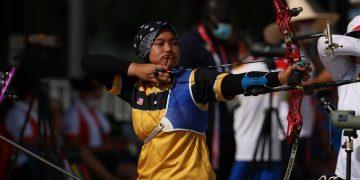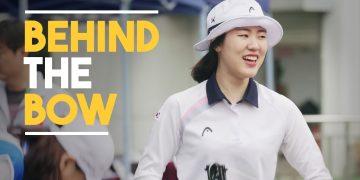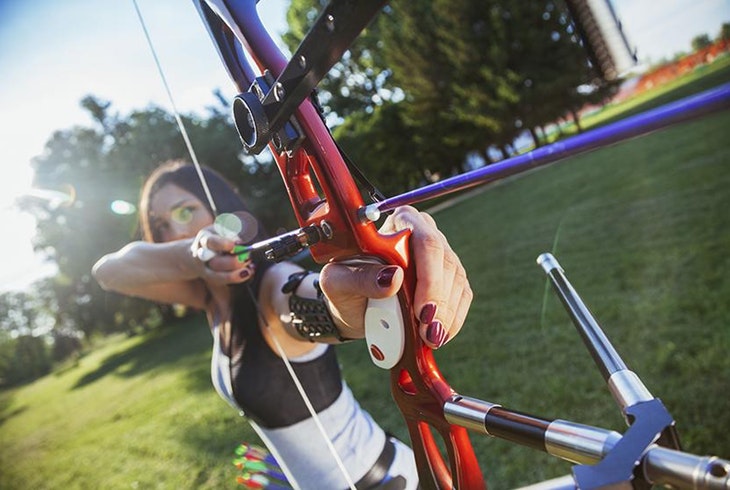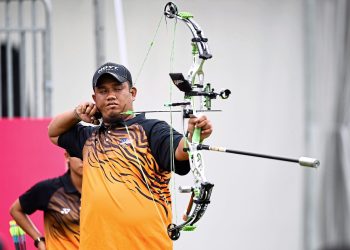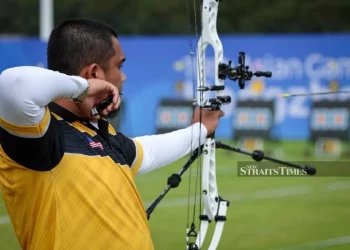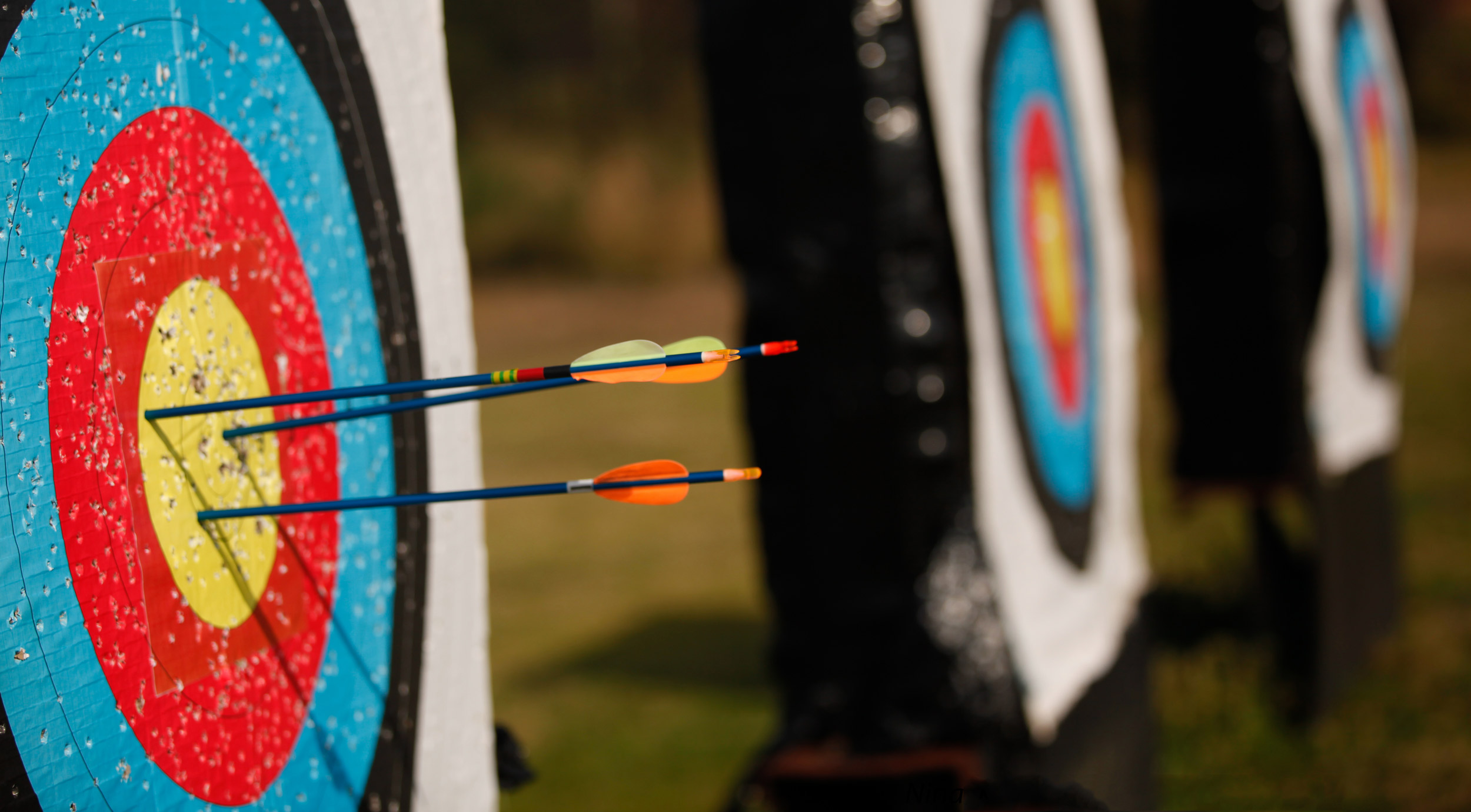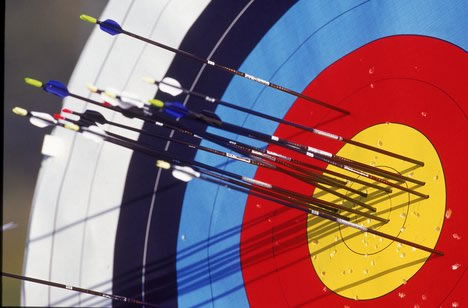Many archers are working to “perfect their shot”. I argue that this is a mistake. What they need to be working on is enhancing their skill. Let me explain.
Let us say, for the sake of argument, that you perfected your own shot in practice yesterday. Every arrow was going into the target center, making groups smaller than the maximum scoring area (the de facto definition of “great groups”). Everything felt easy, nothing troubled you. Your mental program meshed with your physical activities like never before. You were at peace and performing like a man/woman possessed.
That was yesterday.
Today, well today is a different day. You are one day older. Today you are feeling stronger/weaker. You are more/less focused. You … I guess you get the point. The old saying is you can’t cross the same river twice, meaning that the water you walked though the first time has flown away.
Surely, though, you will be very, very close to that wondrous state of yesterday? Will you? There is a saying in golf that “a very good round is seldom followed by another.” This saying tells us that you can’t take that performance with you when you go to bed at night.
Why is this so? Well, I can’t say definitively but it seems that the difference between an excellent shot and just a very good one is very, very little. Rick McKinney is fond of saying that to hit the 10-ring on a target at 90 meters, the arrow point needs to be in a specific circle one sixteenth of an inch wide (about one and a half millimeters wide). Arrow point in that circle, and the aim is good, outside of that circle and not so good … and then there has to be a perfect loose to back that aim up.
The difference in “feel” between the two states is almost nonexistent. The visual pictures of the aperture on the target of the two aims are indistinguishable.
Searching for perfect technique and then thinking that is enough to get you on the winner’s podium is a fool’s errand. The reason it is is not just that you are different from day to day (you are, you know this) but that the task is different, too. Even indoors the conditions are not identical from day to day. Outdoors, the conditions vary widely (think wind, angle of the sun, whether you are standing on flat firm ground or squishy mud, or…, or….
What is better to focus on once your technique is solid is your ability to adapt. If you are breezing along in a tournament and you suddenly shoot a wild arrow into the 3-ring, do you think “Hmm, I’ll have to take a look at the arrow and if there is nothing wrong it, add that to the list of things to work on in practice next week.” Of course not! If there is a problem you need to fix it right away. All of the champions in the aiming sports think the same way.
Elite archers know their personal tendencies, the errors and mistakes they are prone to, and also know how to fix those in real time. This is the core of acquired skill as an archer.
Now you could have your students just go compete and wait for things to show up and experiment with solutions as they perform (exactly how we learned!) but this is a costly approach. If they are just a bit more organized, take a few notes, ask a lot of questions, they can be better prepared for the eventualities.
Do you show your students how to inspect their bows and arrows for defects?
Do you simulate problems happening during practice rounds so they can practice adapting?
- Do you ask them to keep lists of their common mistakes?
- Do you ask them to write down solutions to “problems” whether they worked or didn’t work and examine those in practice?
- Do you counsel your student-archers to keep their ears open for possible solutions to problems encountered when shooting when talking to other competitors?
- Do ask your students to take notes after competition sessions? If not, you are leaving it to “experience” to teach them what they need to learn. And, while experience is “the best teacher,” it is also brutal. For example, would you want your students to learn about target panic by getting it? Or would you like to caution them (sensibly) and then show them how to avoid it?


